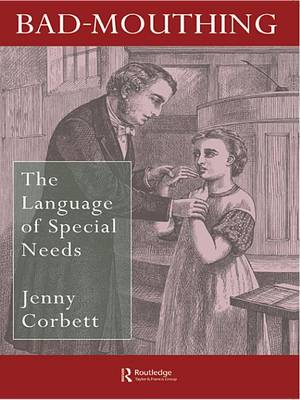The power of language is overwhelming and this is shown in the way in which words are used to define, portray and explain people and situations. With this in mind, then, it is interesting to note how the language of "special needs" has always been composed of words and images which foster fear, mistrust, loathing and hostility - "idiot", "imbecile" and "moron" are frequently used as terms of abuse.; Whilst there has been considerable theorizing on the psychological and sociological aspects of special education, as well as a recognition of the influence of policies and politics, there has not yet been a concerted attempt to analyze the way in which language is used to create codes and images. This general lack of interest may be because semantics seem peripheral to special education: the focus has rather been on individual case studies, teaching programmes, legislation and practice.; Jenny Corbett, however, has a particular interest in the language of special needs. Over the past few years she has explored: the ways in which new discourses have emerged to challenge those of enlightened modernity; the political correctness of special needs language in the mid-1990s; and the ways in which imagery is changing as proud labels displace the legacy of negativity. In this book the author brings together the findings of these explorations as she looks at where the language of special needs has emerged from, where it seems to be going at present and what is likely to become of it in the near future. In order to more fully understand why some learners are marginalised and given an inferior status, says Jenny Corbett, it is important to explore the way in which language has been used.
- ISBN13 9781135400330
- Publish Date 5 November 2013 (first published 17 November 1995)
- Publish Status Active
- Publish Country GB
- Publisher Taylor & Francis Ltd
- Imprint Routledge
- Format eBook
- Pages 114
- Language English
